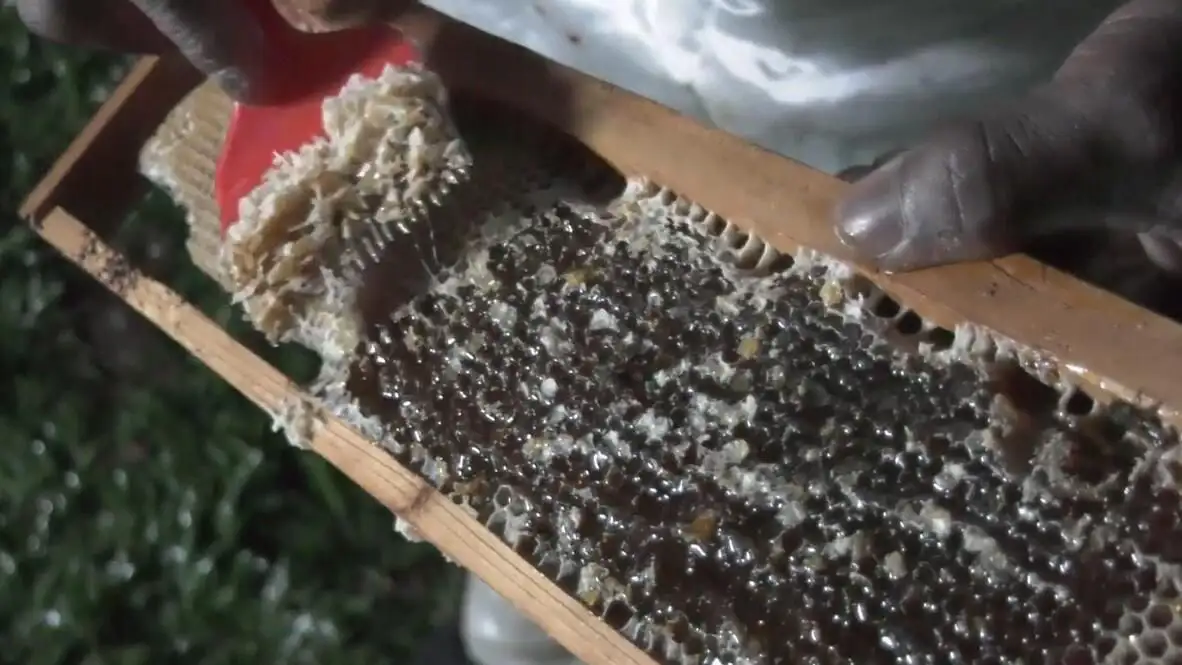Kenyan beekeepers are raising urgent concerns about the influx of cheap, toxic pesticides that are banned in Europe but continue to be exported to their country, jeopardizing both their livelihoods and the delicate ecosystem.
The alarming situation has sparked outrage among local farmers who rely on healthy bee populations for pollination and honey production.
Luis Leackey, CEO and Founder of Japur Farm Solutions, highlighted the gravity of the issue. “The pesticides which have been listed as hazardous or dangerous to the environment by our friends from European countries… these are the pesticides which are being sold at a very cheap price in the Kenyan market. So, farmers are really craving for them,” he explained. This paradox of affordability versus safety is putting immense pressure on local beekeepers, who are witnessing a dramatic decline in bee populations.
Joseph Oundo Nyonje, a dedicated beekeeper, shared his heart-wrenching experience. “We are surrounded by farms, sugarcane farms, some kind of crop farms. The moment the spring is done, using the pesticides and when our bees come now to collect the nectar from these flowers, they die,” he lamented. Fellow beekeeper Linus Nyalik echoed his sentiments, stating, “They have killed most of our colony. It's a very big loss to our production and our project.”
Despite the European Union’s domestic bans on these chemicals, many hazardous pesticides are still produced and exported to countries with less stringent regulations. Reports indicate that tens of thousands of tonnes of such pesticides, including ethoprophos and chlorothalonil, classified as a probable carcinogen by the EU, are being shipped to the Global South, with Kenya being a primary recipient.
Local farmers face a dilemma. Odhiambo Misita, a farmer who uses these pesticides, admitted, “I know they kill bees; however, I cannot stop spraying because the kale farm is my livelihood. We have had issues with my brother, who is a beekeeper, complaining that I am killing his bees, but I can't stop because it kills the pests and herbs in my farm and gives me earnings from my veggies.” This conflict between agricultural necessity and environmental responsibility illustrates the complex challenges faced by both farmers and beekeepers.
In response to growing concerns, the Kenyan government has begun implementing measures to regulate pesticide sales. The Route to Food initiative reports that 76 per cent of pesticides sold in Kenya are classified as Highly Hazardous Pesticides (HHPs), with 44 per cent of those banned in Europe. Recently, more than 70 pesticides have been withdrawn from use, over 200 have been restricted, and over 150 are under review.
In 2020, the European Commission pledged to prevent hazardous chemicals banned in the EU from being produced for export; however, critics argue that little has been done to enforce this commitment. Countries like France, Belgium, and Germany have initiated national measures to curb such exports, but the ongoing crisis in Kenya underscores the urgent need for stronger international regulations.
As Kenyan beekeepers continue to grapple with the devastating impact of these pesticides, their plight serves as a stark reminder of the interconnectedness of global trade practices and local ecosystems. The fight against these harmful chemicals is not just about saving bees; it’s about preserving livelihoods and protecting the environment for future generations, Viory Media reported.




